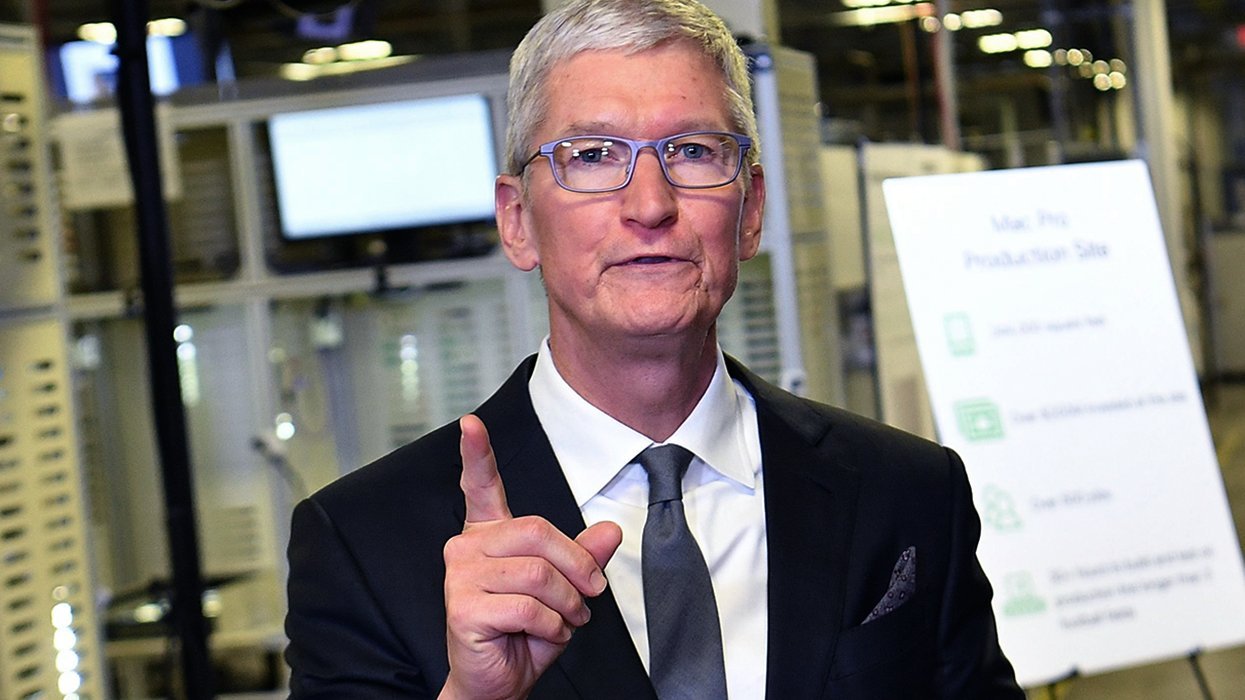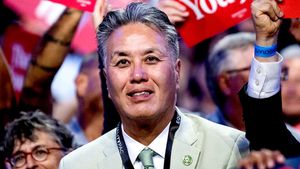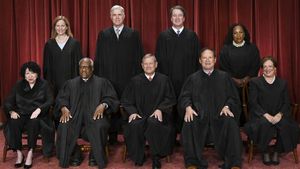A Democrat could win the Mississippi governor's race for the first time in 15 years, but it may not matter because of a Jim Crow-era law designed to keep white people in power. Every LGBTQ+ person in the country should be paying attention.
Today, Mississippi voters will go to the ballot box to decide whether Democrat Jim Hood or Republican Tate Reeves will be the state's next governor. Given that the Magnolia State is one of the country's most reliably conservative blocs -- favoring Donald Trump by 17.8 points in 2016 -- the election has proven to be a surprising nail-biter. After leading for a majority of the race, early polls show Hood trails his conservative opponent by three points.
The heated race is a testament to the growing power of voters of color in the American South. In Mississippi, Black communities -- which are heavily concentrated in the Delta in the state's northwest corner -- account for 37 percent of the population. That number represents the highest figure of any U.S. state.
As Black voters skew heavily Democratic, those numbers threaten to forever shift the political balance of power, which is why local conservatives have been so focused on voter suppression tactics. In Mississippi, all voters are obligated to show identification in order to vote at the ballot box, and research shows non-white voters are less likely to have a valid ID. According to surveys conducted by the Public Religion Research Institute (PRRI) and The Atlantic, nine percent of Black and Latinx voters were turned away in 2016, told they "lacked the proper identification to vote."
But even if Hood manages to claim the majority of votes in a state that has done everything in its power to keep Black people away from the polls, he still could wind up a bridesmaid. A Jim Crow-era regulation designed to keep a Black person from ever becoming governor Mississippi requires that candidates win both the popular vote and a majority of districts in the state. If no gubernatorial contender does so, it's up to the Mississippi House of Representatives to pick the next governor.
That's extremely bad news for Democrats. During the 2016 election, Hillary Clinton won 26 of Mississippi's 82 counties -- a share of 31.7 percent. Because those areas tend to be more heavily populated than conservative rural districts, that percentage is significantly lower than her popular vote total: 40.1 percent.
Should Mississippi be headed for a split on Tuesday, there's little question as to what the House of Representatives would decide. Republicans claim 72 of the 122 seats in the lawmaking body -- just shy of a supermajority.
Prior to what's likely to be a contentious result, four Black voters filed a lawsuit challenging the decades-old voting laws, which were originally referred to as "The Mississippi Plan." Although a judge put the case on hold until the results come in, the outcome will have a major impact on the future of equality in the state. Hood, the Democrat in the race, opposes Mississippi's House Bill 1523, one of the nation's most virulently anti-LGBTQ+ laws. Reeves, his Republican opponent, is one of its most passionate supporters.
Signed into law by outgoing Governor Phil Bryant in 2016, HB 1523 gives people of faith wide latitude to discriminate against LGBTQ+ people in the name of religion -- whether it's business owners, landlords, or health care providers. As ThinkProgress reported at the time, the law would even allow an employer to fire a woman for wearing pants.
As a legal challenge to the so-called "religious freedom" law passed through the courts, Hood -- who served as the Mississippi attorney general at the time -- refused to defend it in court. When a judge issued a since-overturned federal injunction preventing HB 1523 from going into effect, he claimed that continuing this "divisive and expensive litigation is not in the best interests of the state of Mississippi or its taxpayers." Bryant, however, overrode Hood, using his own attorney to appeal the ruling.
As the sitting lieutenant governor of Mississippi, Reeves sided with his boss. When a judge lifted the injunction against HB 1523 two years ago, he claimed the law does not discriminate against LGBTQ+ people but instead protects "Mississippians from government interference when practicing their deeply held religious beliefs."
The aftermath of the election could decide the future of HB 1523 in Mississippi. While Hood would not have the power to unilaterally overturn the law given that both houses of the legislature will continue to be controlled by Republicans, he has the ability to pass executive orders protecting LGBTQ+ people from discrimination in government employment or take other actions safeguarding the community from harm.
Observers say, however, that voters may not know what's next for Mississippi for weeks. After all votes are tallied, a judge will decide whether the case against the state's voting laws can proceed.
In the meantime, LGBTQ+ people around the country will be keenly observing every vote -- especially those who live in Mississippi or left the state following HB 1523's passage. Malaysia Walker, the former transgender education and advocacy program coordinator with the ACLU of Mississippi, moved to Louisiana in fear that she would face rampant discrimination as a Black trans woman under the law. She told NewNowNext earlier this year that "eight to 10" members of her close circle of friends made the exact same decision.
Whether Mississippi's voting law is permitted to stand could determine whether LGBTQ+ people forced into exile can someday return to their home state or if they will continue to be fired from their jobs, refused housing, or denied basic services because of who they are. Consider our collective fingers crossed.




















































































Why Mississippi’s Racist Voting Laws Should Matter to LGBTQ+ People
The state's gubernatorial race will be decided by a Jim Crow-era law designed to keep white people in power.